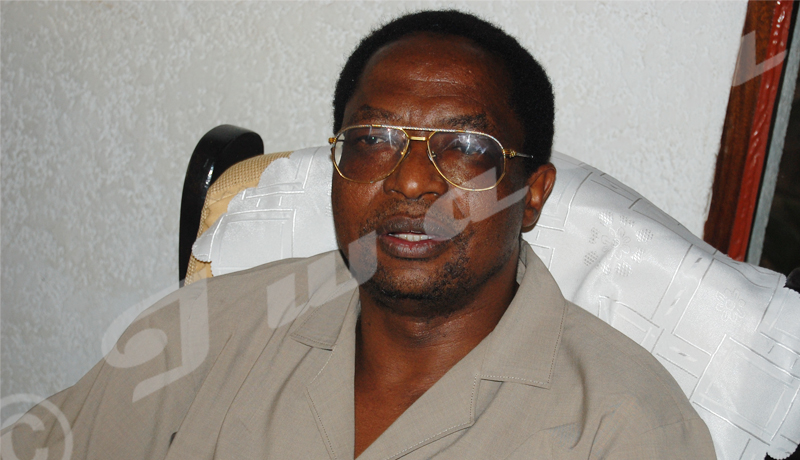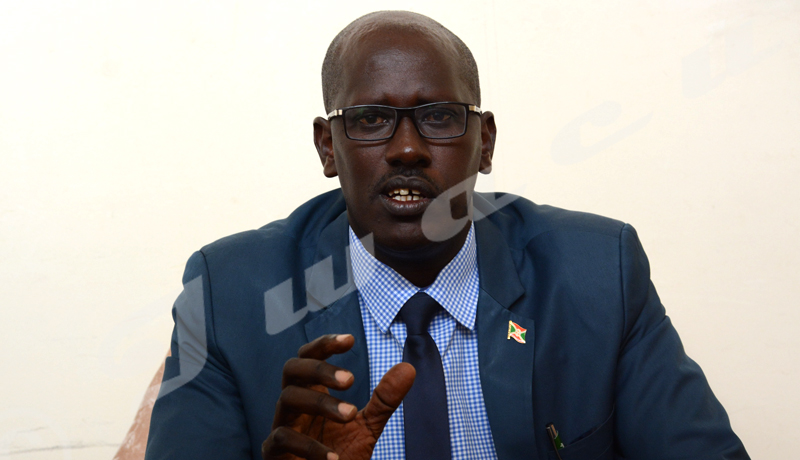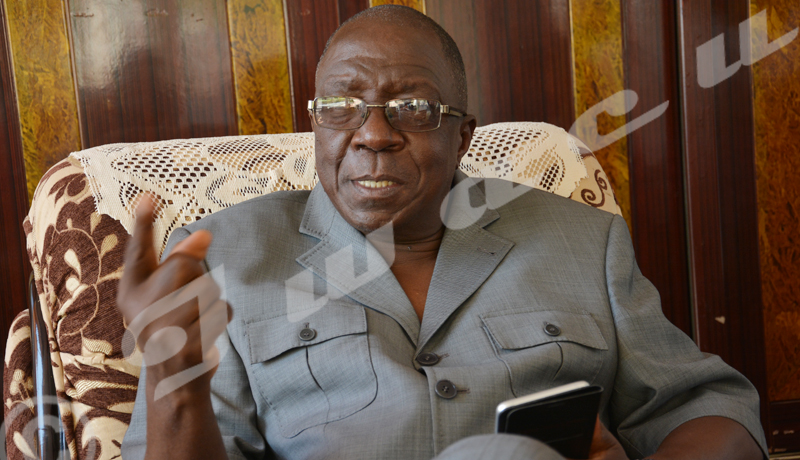The President of the Republic has ordered that the motto “God, King, Burundi” be on the country’s national monuments. The approach raises questions.

One of the monuments with the monarchical motto in Cibitoke province
The motto of the monarchy era is given back its honor. Many monuments are repainted all over the country. They have the emblem of the Burundian monarchy: “Imana, Umwami, Uburundi (God, the King, Burundi) alongside the current motto of Burundi which is “Peace, Justice, Work”.
It is “the motto of the time of King Ntare Rushatsi, the founder of the kingdom of Burundi” and it’s the decision of President Pierre Nkurunziza. According to his spokesman, Burundi must “resume its values of the time of monarchy before the ravages of colonization and changes of a putschist president”.
“Imana” (God) had a special place in the lives of Burundians. This is why the first sentence of the Constitution refers directly to God. “We, the Burundian people: aware of our responsibility before God”
For Jean Claude Karerwa Ndenzako «Michel Micombero went so far as to profane the mausoleum of Prince Louis Rwagasore(the independence hero) by erasing the motto of the time and replacing it with “peace, justice, work” which was in fact the motto of UPRONA party only”. It’s an aberration that the population has decided to rectify.
Towards the reign of Nkurunziza I?
The spokesman for the President of the Republic rejects these ‘speculations’.
He recalls President Nkurunziza’s clear message that he will not run for president again in the presidential elections.
“He said that his term will end in 2020 and he will not renew his candidacy». This modification of the emblems is a historical necessity.
The presidency does not close the door on the monarchy. The 2018 Constitution allows the restoration of the monarchy. It is true that the Constitution of 2005 clearly indicated this possibility in Article 4 by mentioning that “The status and restoration of the monarchy can be subject to a referendum. Any party that peacefully advocates the restoration of the monarchy has the right to function». The Constitution of 2018, captures a nuance in its Article 4 from “… can be subjected to a referendum” to “must be subjected to a referendum”.
For Jean Claude Karerwa, the population is sovereign. “If Burundian people decide to bring back the kingship and call for a referendum through the national inter-Burundian dialogue commission, CNDI, we will have no choice but to move forward with it.”
Reactions
Léonard Nyangoma: “At the beginning, I thought it was a social media fabrication.”
 The chairman of the CNDD party, currently in exile, initially thought of a social media fabrication. “Now that this is a reality, we realize a maneuvering aimed at transforming the oligarchy of Nkurunziza’s power into absolute monarchy. In these conditions, President Nkurunziza would be preparing to be enthroned as a king or emperor”.
The chairman of the CNDD party, currently in exile, initially thought of a social media fabrication. “Now that this is a reality, we realize a maneuvering aimed at transforming the oligarchy of Nkurunziza’s power into absolute monarchy. In these conditions, President Nkurunziza would be preparing to be enthroned as a king or emperor”.
In other words, he will be the Head of State for life. For Léonard Nyangoma, the Republic of Burundi has become a theocratic monarchy, since “the power emanates from God,” according to Nkurunziza. Soon, he will massage the Constitution to replace the emblems of the Republic by those of the monarchy. Time will tell,” says the president of the CNDD party.
Abel Gashatsi: “Not against the possibility of a return to the monarchy”
 The president of UPRONA party believes that returning to monarchical emblems is not a bad thing. He was particularly pleased that the President of the Republic had decided on 1st July 2018 to put back the motto that existed before the dictator Micombero changed it. “It was weird of him to challenge the decisions of people who fought for the country’s independence.” For Abel Gashatsi, the youth must know the real history of Burundi and that means the restoration of past emblems. He also said he is not against a possibility of a return to the monarchy if that is the desire of the people “because even the founder of our party Prince Louis Rwagasore was descendant of the throne.”
The president of UPRONA party believes that returning to monarchical emblems is not a bad thing. He was particularly pleased that the President of the Republic had decided on 1st July 2018 to put back the motto that existed before the dictator Micombero changed it. “It was weird of him to challenge the decisions of people who fought for the country’s independence.” For Abel Gashatsi, the youth must know the real history of Burundi and that means the restoration of past emblems. He also said he is not against a possibility of a return to the monarchy if that is the desire of the people “because even the founder of our party Prince Louis Rwagasore was descendant of the throne.”
Sylvestre Ntibantunganya : “A commission should be set up”
 For the former President of the Republic, historians must enlighten us so we know what is true and what is false in the history of Burundi. In a country with many controversies and where a change of emblems could raise questions and speculations, a commission should be set up. It would be responsible for restoring the emblems of certain monuments that existed in the monarchical era before their falsification by the power that had other aims. The country has been marked by historical events which are seen through monuments that must be recounted as they are.
For the former President of the Republic, historians must enlighten us so we know what is true and what is false in the history of Burundi. In a country with many controversies and where a change of emblems could raise questions and speculations, a commission should be set up. It would be responsible for restoring the emblems of certain monuments that existed in the monarchical era before their falsification by the power that had other aims. The country has been marked by historical events which are seen through monuments that must be recounted as they are.
Towards a theocratic monarchy?
Analysis by Agnès Ndirubusa
There are lots of speculations where each one tries to give an explanation about this desire to return to the monarchical motto.
A historian asks why Burundians may wrongly think about the possibility of a theocratic monarchy envisaged by the power in place. “The president blesses the seeds, receives gifts from his people, he says he is a descendant of the founding king Ntare Rushatsi, he fasts every Thursday, he organizes crusades …” he says, with a sense of humor. He thinks this will not go further.
However, allusions to the monarchy have been increasing for some time, especially in moralization sessions. President Pierre Nkurunziza manifests the will of a return to the roots to emphasize the greatness of the kingdom of Burundi with its heroic kings.
A real debate should have taken place on a matter of national interest. Because, although it is true that the Constitution in its article 4 mentions the possibility of a return to the monarchy, article 11 stipulates that the national motto is “Unity, Work, Progress”.
Those who are of the opinion that the motto “God, King, Burundi” be put back may have their reasons. The current Constitution allows secularism (Article 1) and a possible return to the monarchy. However, it may seem strange to speak about a non-existent king. That would make sense if one switches to monarchy…
Translated into English by Pierre Emmanuel Ngendakumana



















 IWACU Open Data
IWACU Open Data

